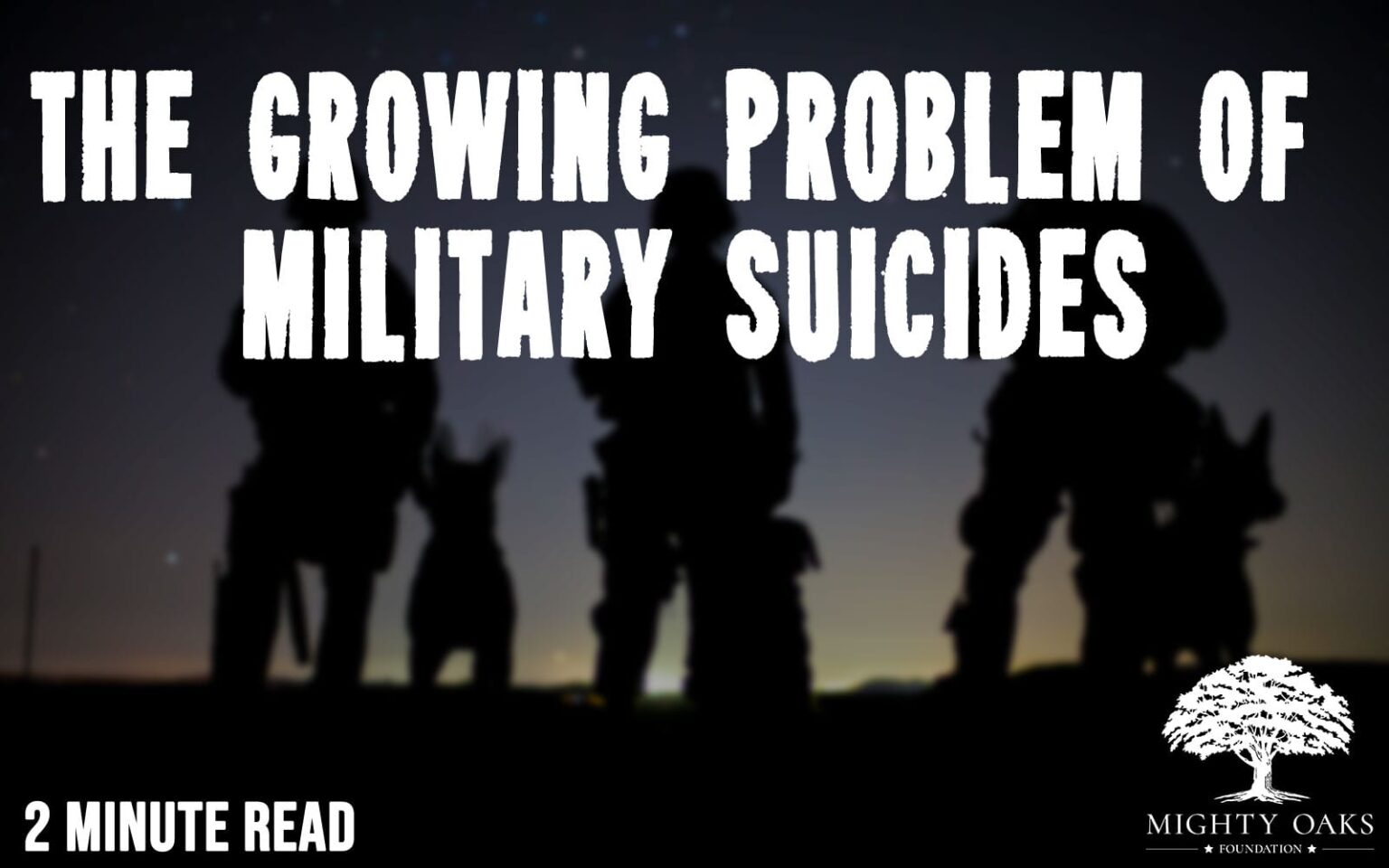By USC MSW Staff Member
U.S. veterans are dying by suicide at an alarming pace.
The national veteran suicide rate was almost 30 per 100,000 people in 2015, or about 20 deaths every day, according to the Department of Veterans Affairs External link . The age-adjusted rate of suicide among veterans increased more than 30 percent from 2005 to 2015, compared to an almost 20 percent increase among the non-veteran population. Female veterans in particular saw a 45 percent spike over that time period.
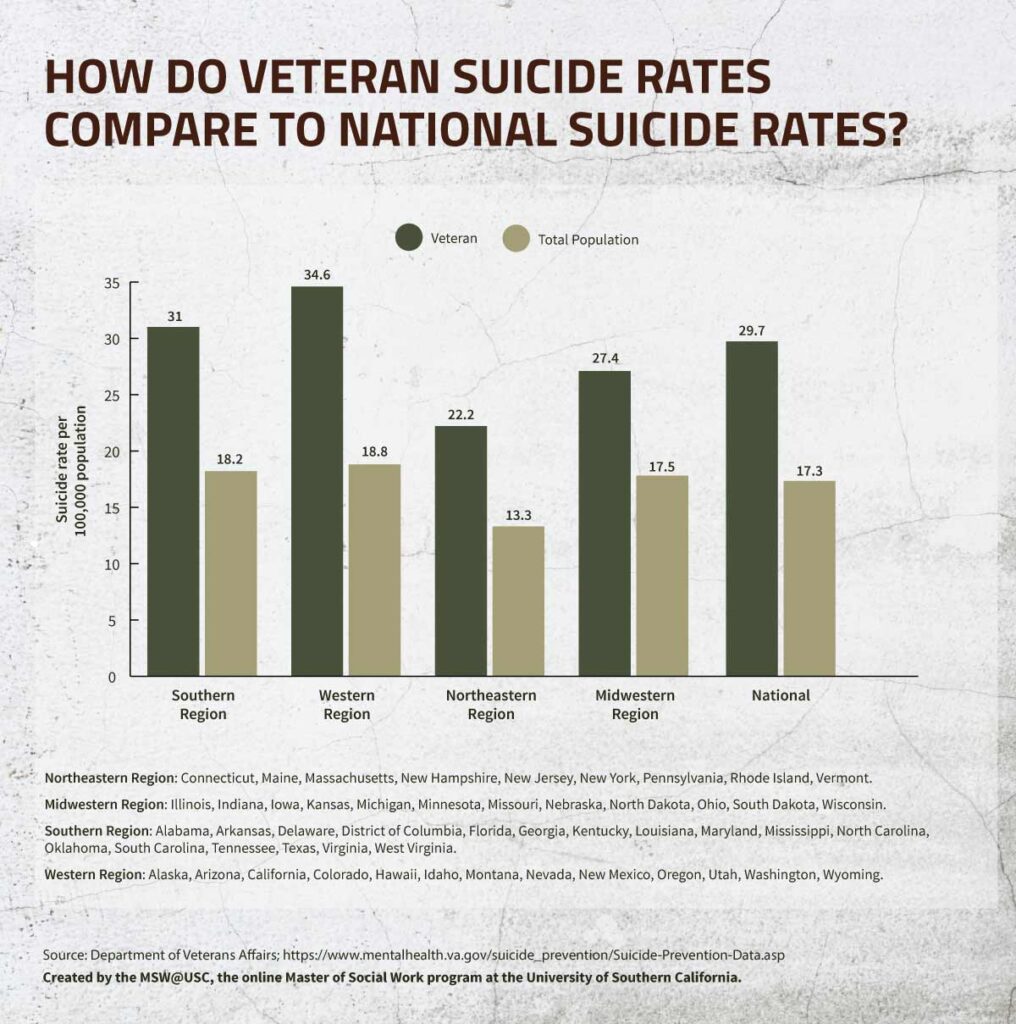
“Military life is hard for a variety of reasons, including an increased exposure to trauma, frequent moves that disrupt one’s social support networks and prolonged separations due to deployments,” said Carl Castro, associate professor, retired U.S. Army colonel and director for USC’s Center for Innovation and Research on Veterans and Military Families External link (CIR).
To address climbing suicide rates among active-duty service members and veterans, the USC Center for Artificial Intelligence in Society External link (CAIS), in collaboration with USC CIR and the USC Viterbi School of Engineering External link , will use artificial intelligence to examine engagement on social networks by military personnel External link to identity risks such as depression and anxiety.
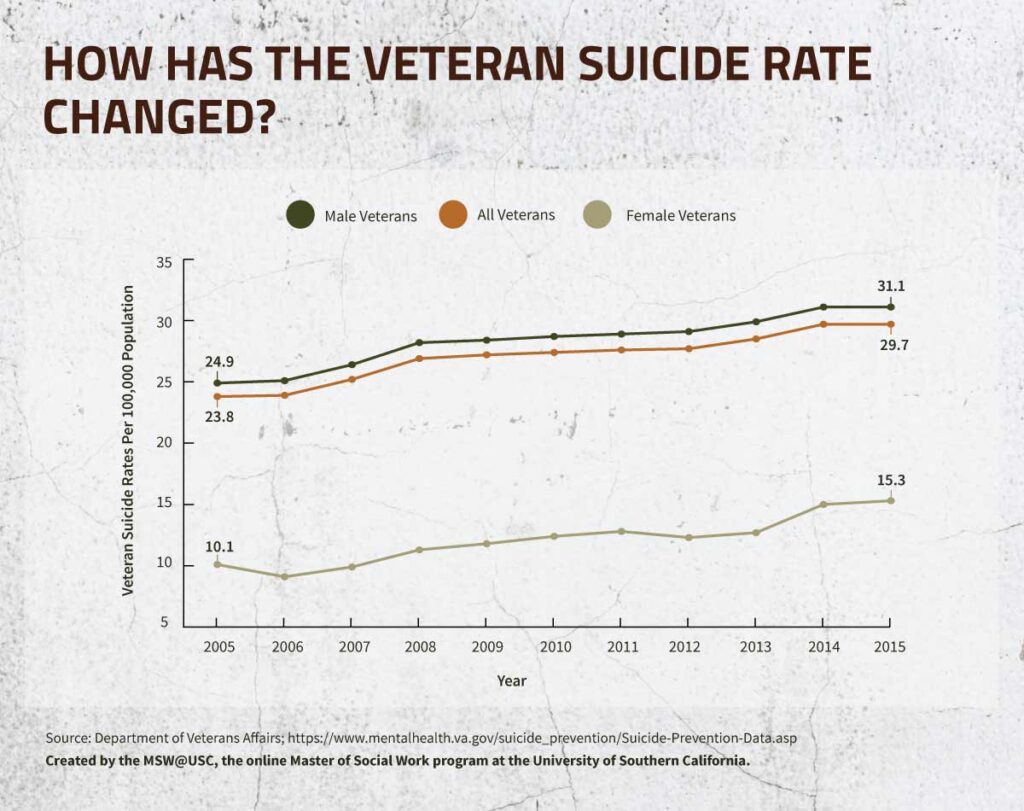
“If we could collect data on people over a period of time, we could look at changes in their social networks to understand when and where and at what moments people become more at risk of suicide,” said Eric Rice, USC CAIS co-founder and associate professor at the MSW@USC.
Researchers will interview 200 to 300 soldiers during their six-month deployments and the next six months at home. They will watch for changes to social networks and engagement with battalion members to identify signs of suicidal thinking and potentially develop new interventions. To hear more from Dr. Rice, listen to “Listen.Up.People. External link ,” a new podcast from the USC Suzanne Dworak-Peck School of Social Work which highlights the topic of suicide as a public health crisis in the first episode.
How is suicide affecting the veteran population? The MSW@USC, the online Master of Social Work program at USC, answers this and other frequently asked questions about veteran suicide below. Visit the USC Suzanne Dworak-Peck School of Social Work Military and Veterans Programs External link page to learn more about what the school is doing to advance the health and well-being of our nation’s service members, veterans and their families.
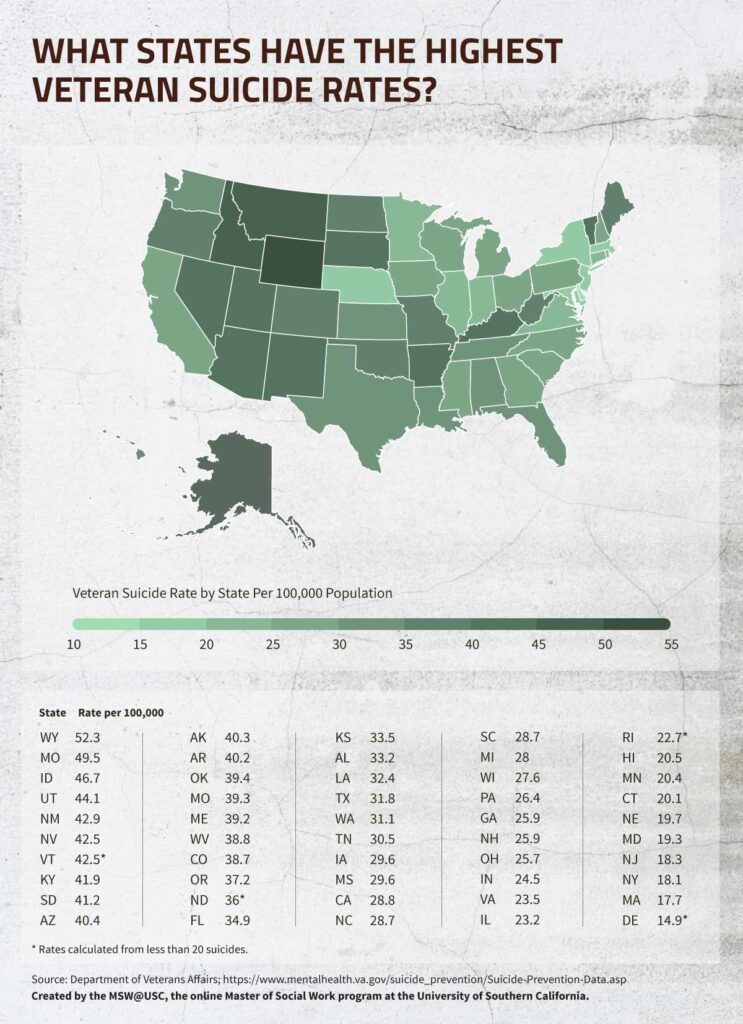
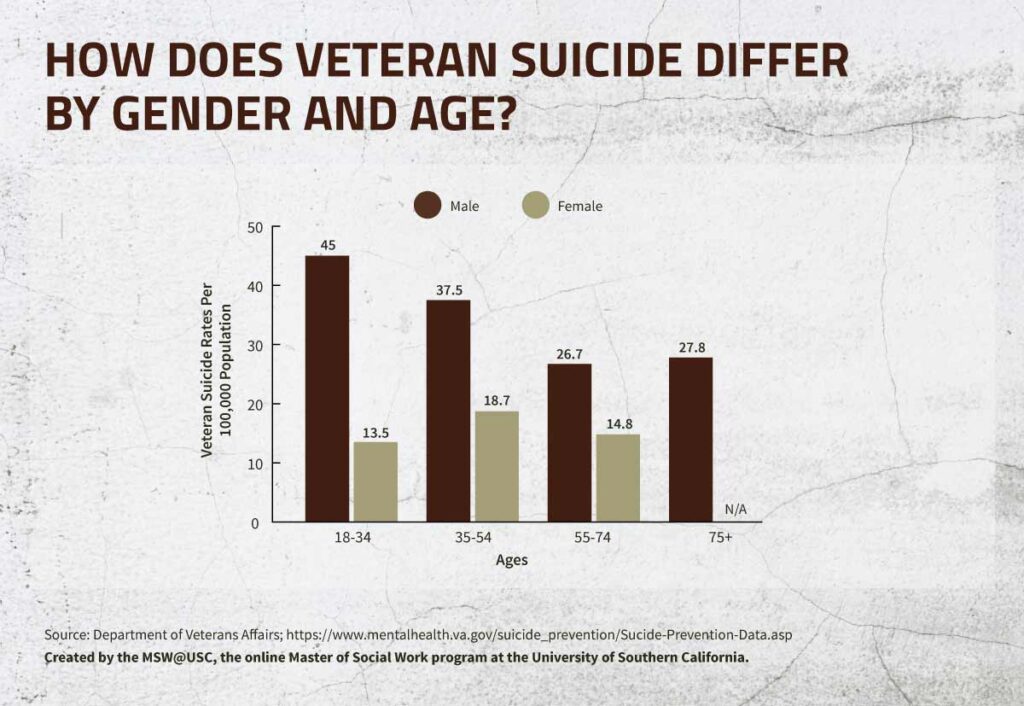
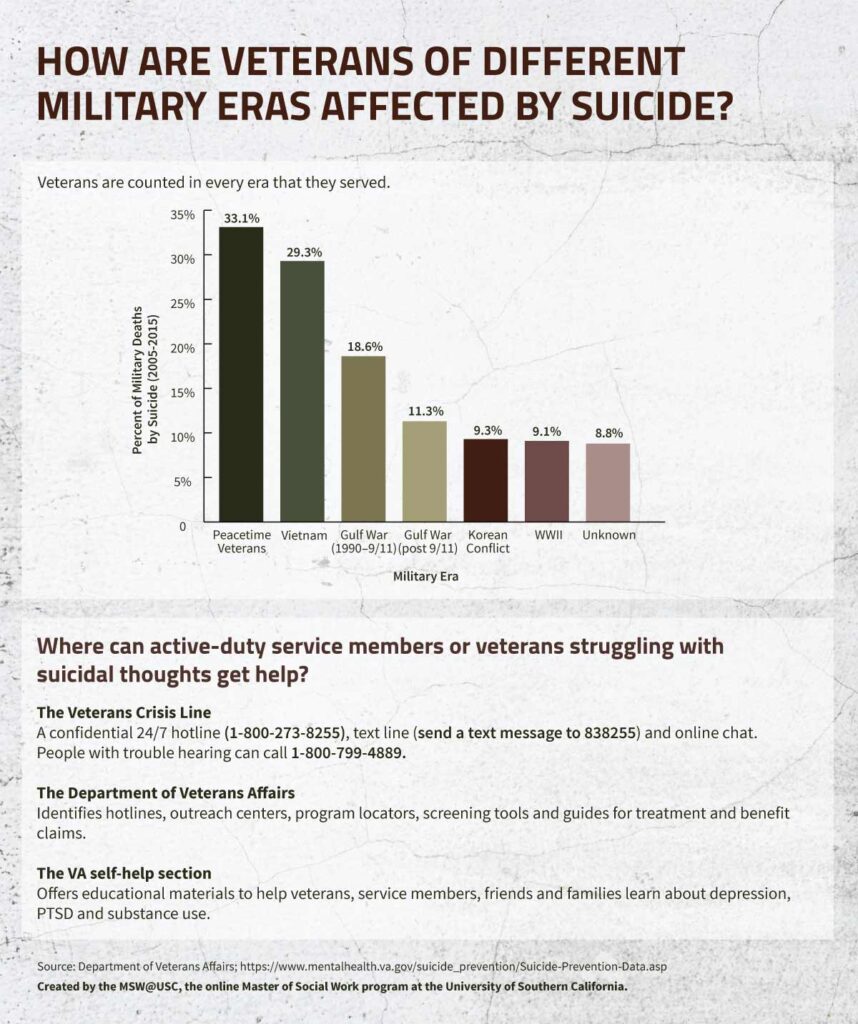
Why Not Try Something Different?
At Mighty Oaks we have a saying, “If what you’re doing isn’t working, why not try something different?”. We’re proud to offer our programs at no-cost to our Nation’s Warriors, apply today!

